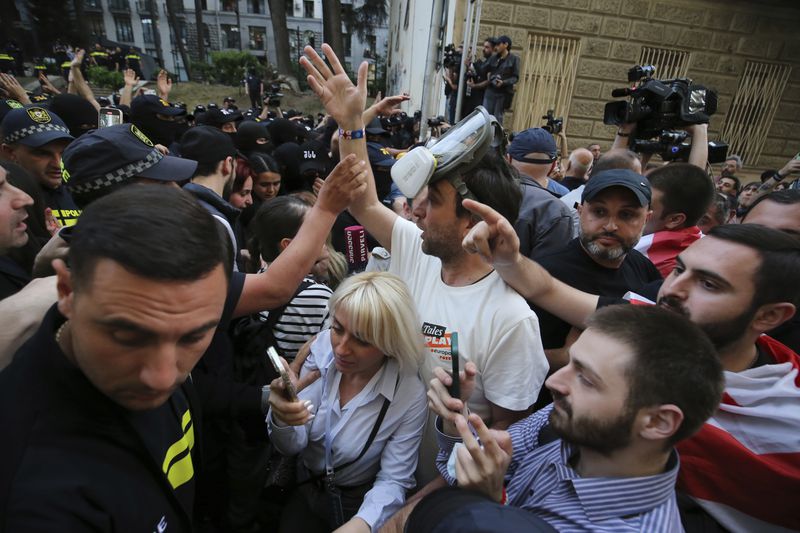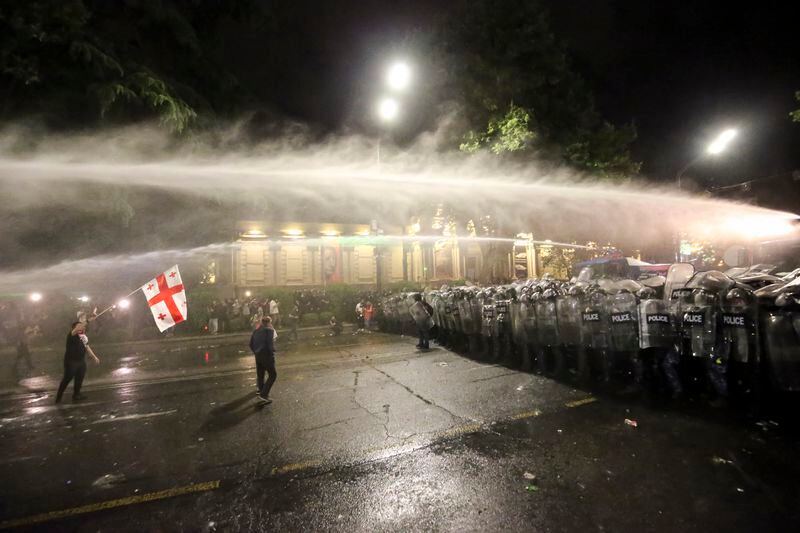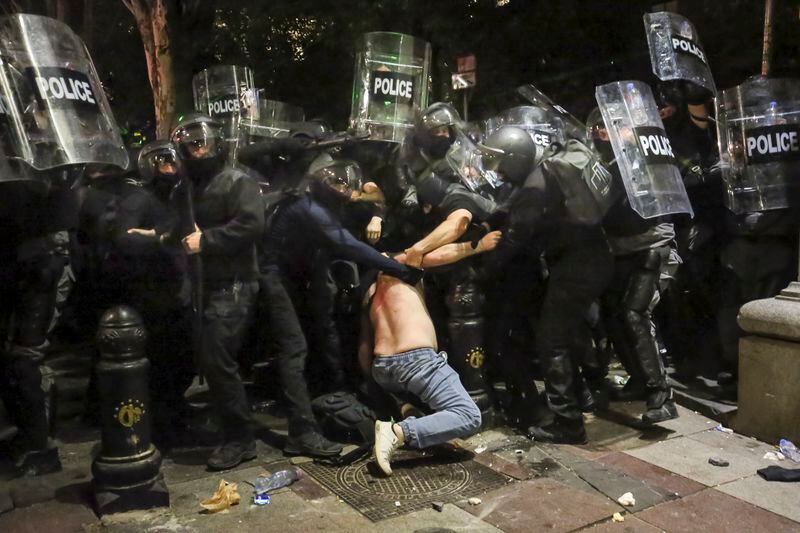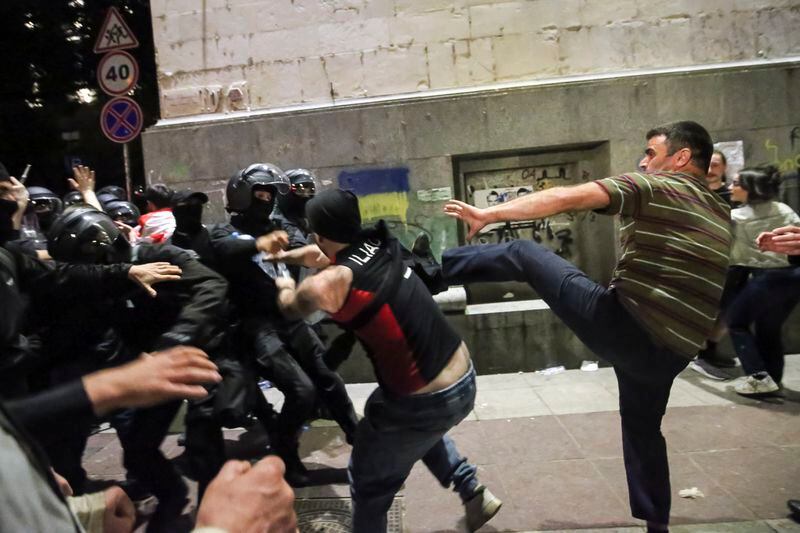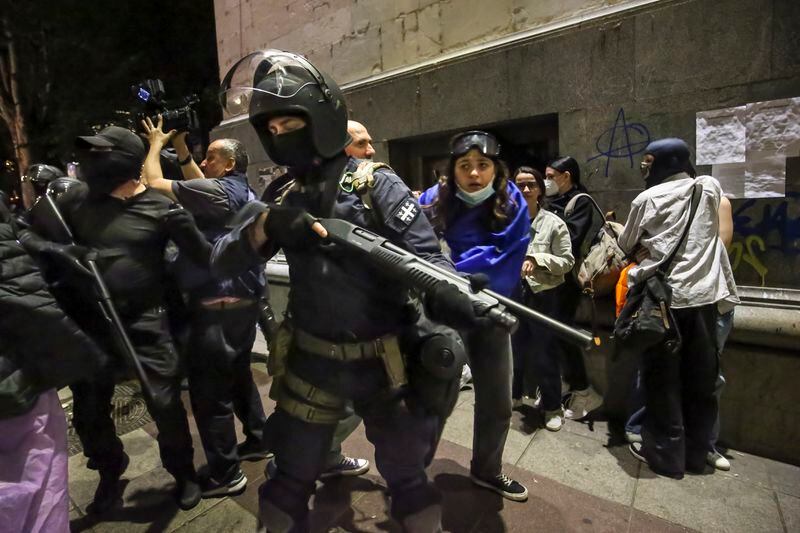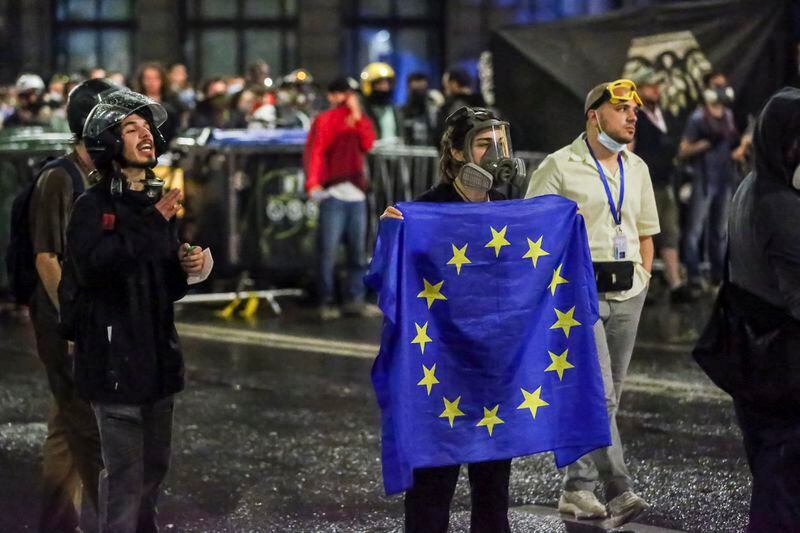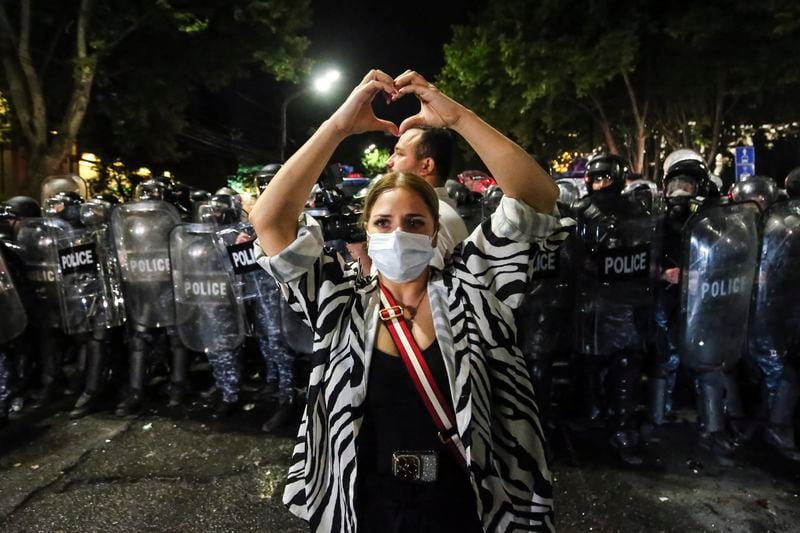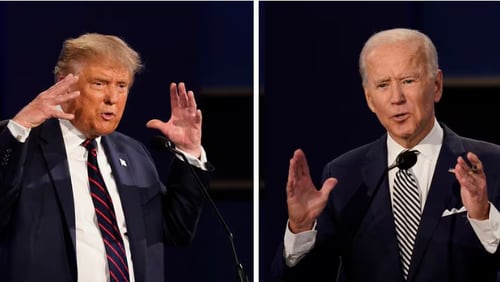TBILISI, Georgia (AP) — Georgia's parliament on Wednesday moved a step closer to passing a law that critics fear will stifle media freedom and endanger the country's European Union membership bid, as tens of thousands of protesters thronged surrounding streets.
The vote occurred hours after dozens of people were arrested as police overnight used tear gas and water cannons to disperse the latest protest. Protesters denounce the bill as “the Russian law” because neighboring Russia uses similar legislation to stigmatize independent news media and organizations critical of the Kremlin.
The law would require media and non-commercial organizations to register as "pursuing the interests of a foreign power" if they receive more than 20% of funding from abroad. The ruling Georgian Dream party withdrew a similar proposal last year after large crowds protested.
Eighty-three of Georgia’s 150 lawmakers approved the bill in its second reading. A third and final vote in Parliament is needed before it can be signed into law. That's expected in the coming days.
Russia-Georgia relations have been complicated and turbulent since the Soviet Union’s collapse in the early 1990s. Georgia joined international resolutions condemning Russia's invasion of Ukraine, but it also became a main destination for Russians fleeing military mobilization and political crackdowns. Even Georgia's ruling party has seen internal tensions over its neighbor.
The Interior Ministry said 63 people were detained in the latest protest.
On Wednesday, Georgian TV showed Levan Khabeishvili, chairman of the pro-West United National Movement party, arriving in Parliament with bandages on his nose and forehead. Members of Khabeishvili's party said he had been assaulted by police during the protests.
Purple bruising and cuts were visible around Khabeishvili's left eye as he urged fellow lawmakers to scrap the bill.
“If you are not interested in how the leader of the main opposition party has been beaten up, then — for the sake of those young people who were injured, who were hit on the heads and bruised — I want to ask you once more, even though I do not have any hope, withdraw this law,” he said.
Deputy Interior Minister Aleksandre Darakhvelidze alleged at a briefing that Khabeishvili broke through a police cordon the night before and was injured while he “resisted.” Darakhvelidze alleged that protesters and opposition leaders were “constantly committing violence.” Police broke up the protest after demonstrators tried to block entrances to Parliament.
As protesters gathered once more Wednesday, opposition lawmaker Beqa Liluashvili published a live video from the Parliament chamber showing lawmakers shouting and physically confronting each other. One threw a stack of papers at opponents. Others restrained colleagues.
Opposition lawmaker Helene Khoshtaria accused the ruling party of trying to “drag Georgia into Russian influence” and “close off its European future.”
Speaking to The Associated Press outside Parliament, she described authorities’ response to the rallies as “extremely authoritarian" but said it would not dissuade the protesters.
“We do not want the Soviet regime that our parents have experienced," one protester, Kato Salukvadze, told the AP late Tuesday. “I think that everyone should be in the streets and say no to the Russian law and yes to Europe."
Georgia’s President Salome Zourabichvili, increasingly at odds with the governing party, has criticized the bill and vowed to veto it if it is passed by parliament. But the governing party can overrule the veto and ask the parliament speaker to sign the bill into law.
The Georgian presidency, which has notably limited powers, will switch this year from a directly elected position to one chosen by a college of electors that includes members of parliament.
Credit: AP
Credit: AP
Credit: AP
Credit: AP
Credit: AP
Credit: AP
Credit: AP
Credit: AP
Credit: AP
Credit: AP
Credit: AP
Credit: AP
Credit: AP
Credit: AP
Credit: AP
Credit: AP
Credit: AP
Credit: AP
Credit: AP
Credit: AP


